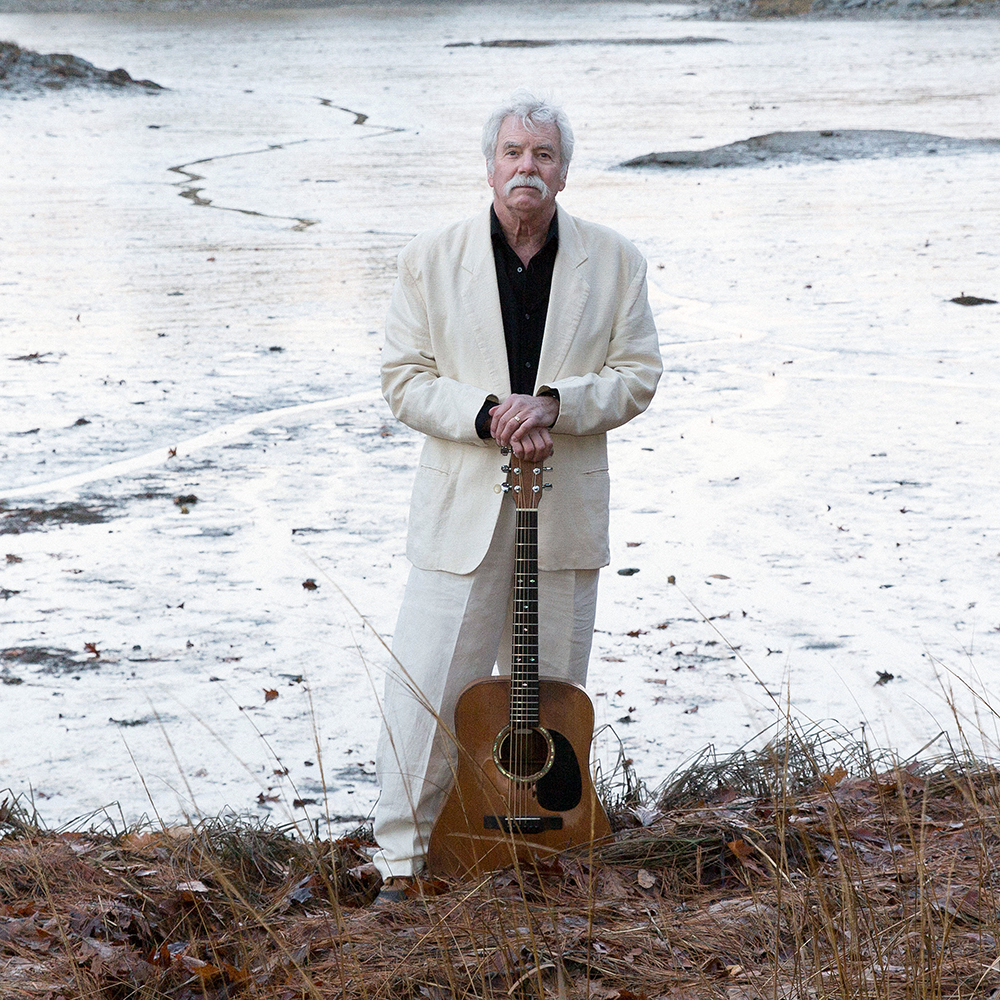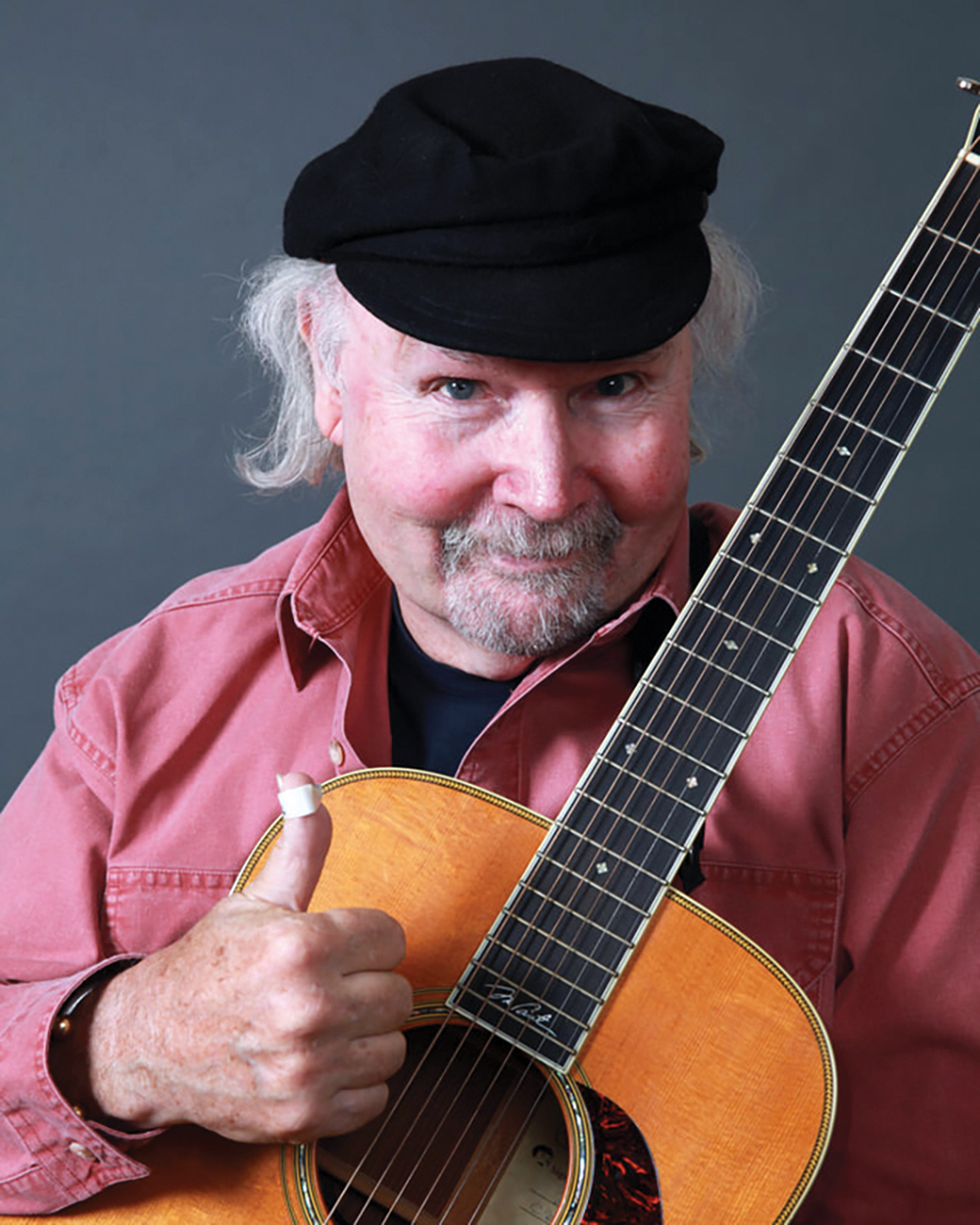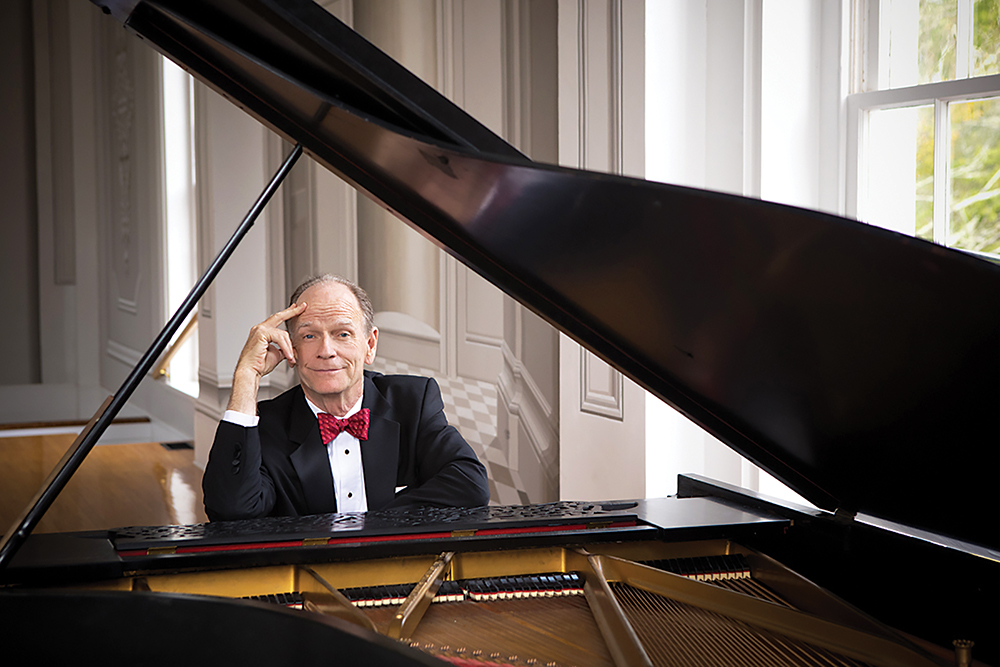In these fraught days of authoritarianism and climate change, when our fate depends more than ever on local community action, music continues to seal the bonds between those fighting the good fight. It’s an age-old function of song, for songs are both rousing and inherently inclusive, spreading equally to all eardrums in the vicinity. America has a tradition of protest and organizing songs going back more than a century, from Joe Hill and the Wobblies, to singing through megaphones at Occupy Wall Street, to today’s pop songs at political rallies or in countless poetry-song slams across the land.
It was no accident, then, that Bruce and Barbara Newman’s mutual love of folk music and the blues led them to create a concert series celebrating both music and community action simultaneously. And, appropriately enough, it started back in the ’90s with the music of Woody Guthrie. “My law practice was starting to represent folk musicians like Tom Paxton and Dave Van Ronk, a whole bunch of them,” says Bruce Newman. “So we started calling on these people to play music concerts, each one for different charitable beneficiaries. The first one we did was a tribute to Woody Guthrie, and we had Odetta, Oscar Brand, Richie Havens, Ramblin’ Jack Elliott, Tom Paxton, and Josh White Jr. on that first bill. And the second one had Tom Paxton and Oscar Brand again, plus Melanie, Roger McGuinn, and Tom Rush.”
Those early concerts became Acoustic Sunday Live, an annual tradition unlike any other in Memphis, now in its third decade. And that last headliner from the early days — veteran singer-songwriter Tom Rush — is significant because he hasn’t been back since then. But it wasn’t for lack of trying.
“I consider Tom Rush a friend,” says Newman. “I see him at Folk Alliance [International] every year. And I bugged him for 20 years, ‘Tom, when are you coming back?’ Well, he always had a conflict the first week in December, right when we always have our concert. But this past summer he said, ‘Bruce, if you move it one week, I’m coming down. It’s a good cause. It’s important.’ And that’s what we did.”
Booking Rush, a diehard pioneer of the folk club scene whose first album came out in 1965, would be a coup for any folk festival, but this year’s Acoustic Sunday Live will also feature Shakura S’Aida, Steve Forbert, and Tim Easton, not to mention special guests Anne Harris and Marcella Simien. As in other years, one thing is clear: When the Newmans get their Acoustic Sunday on, they don’t play.
While finally getting Rush back was a challenge, it was especially significant both because of his ties to the series’ earliest days and because of his role in the ’60s folk revival. Like many folkies of that era, Rush had a great love of Woody Guthrie and classic Appalachian and Southern folk songs when he launched his career as a young English major at Harvard, filling his first albums with such material. But he had too much curiosity to be a pure traditionalist, and, as the ’60s wore on, he filled out his repertoire with songs as disparate as Bo Diddley’s “You Can’t Judge a Book by Its Cover” and Joni Mitchell’s “The Circle Game.”
That eclecticism has marked Rush’s career ever since, setting him apart from the “more authentic than thou” folk set. “I’ve never been accused of being pure,” Rush quips today. “Early on, when I started out in Cambridge, Massachusetts, there was this big folk scene going on, with people playing all kinds of different traditional music. They all tended to specialize. There was one guy who did almost nothing but Woody Guthrie songs, and a band that did nothing but bluegrass, and another guy who did Delta Blues, or Irish-Scottish ballads, and so forth. And I tended to be the generalist.”
That doesn’t detract from the power of Rush’s music to bring folks together. Indeed, his inclusiveness only amplifies that power, even as he eschews what Bob Dylan once pejoratively dubbed “finger-pointing songs.” Part of that came down to Rush’s own sense of himself. “There’s a certain irony in a bunch of Harvard students sitting around singing about how rough it was in the coal mines,” he chuckles. “I did ramble around from genre to genre. By the time I cut my second album for Elektra, I’d run out of traditional songs that got me excited. So one side of that album was traditional songs, and the other side was me covering rock-and-roll tunes, including one that I wrote, ‘On the Road Again.’”
He also had his antennae out for a new era of songwriters. “Then the following album was The Circle Game, where I introduced [the songs of] Joni Mitchell, James Taylor, and Jackson Browne because nobody really had heard of them before. That was a further switch away from traditional folk. These three brilliant writers came at me from different directions, but they were writing stuff that was dazzlingly great, yet not so different from folk that I couldn’t relate to it.”
His ear for a good song has served him well, up through his latest release of all originals, Gardens Old, Flowers New. Those attending Acoustic Sunday Live should expect that same soothing voice and eclectic ear that’s kept Rush, now on what he likes to call his “63rd annual farewell tour,” in demand for decades, as he swaps songs with other legendary troubadours. “I stay away from getting political on stage,” he says. “I have done shows to support various causes, but I don’t take it on stage. I think my shows should be a little bit of a vacation from problems of the world.”
Acoustic Sunday Live — The Concert to Protect Our Aquifer, presents an evening with Tom Rush, Shakura S’Aida, Steve Forbert, and Tim Easton, as well as special guests Anne Harris and Marcella Simien, at First Congregational Church, Sunday, December 15th, 7 p.m. Tickets start at $50.



